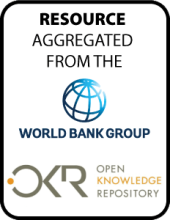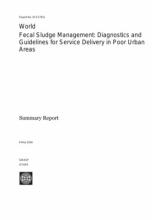Land Library
Welcome to the Land Portal Library. Explore our vast collection of open-access resources (over 74,000) including reports, journal articles, research papers, peer-reviewed publications, legal documents, videos and much more.
/ library resources
Showing items 1 through 9 of 191.Located in the arid and semi-arid areas of West Africa, the Sahel has undergone profound changes over the past 50 years.
Agriculture influences and shapes the world’s ecosystems, but not always in a positive way. More than 2.5 billion people are globally involved as stewards of land and water ecosystems that constitute the natural resource base for feeding the current and future world population.
This note is part of an Action Notes series and provides guidance for governments and companies on how to ensure that the impact of agricultural investments on water resources is effectively measured, monitored, and regulated.
As World leaders forged two new big deals in late 2015 – the Sustainable Development Goals (SDGs) and the Climate Change Agreements – over 200 experts and technical officers working in fields related to land and water management, participated in the 3rd Land and Water Days held at the Food and Ag
The West African coastline is home to
major industries, mining activities, peri-urban and
agro-industry, and tourism, as well as urban and seaside
residences, all of which generate waste and cause pollution.
Urban sanitation remains a significant challenge for most low- and middle-income countries. While sanitation coverage has been increasing across both the 48 least developed countries (LDCs) and developing regions as a whole, progress has been relatively slow.
These are the prepared remarks
of Robert S. McNamara, President of the World
This paper presents the first basin-wide
assessment of the potential impact of climate change on the
hydrology and production of the Ganges system, undertaken as
part of the World Bank’s Ganges Strategic Basin Assessment.
This Issues Paper, requested by the former Ministry of Water Resources Development and
Management as a recommendation of the National Water Policy (NWP), will contribute to the National Climate Change
Response Strategy (NCCRS) by examining




